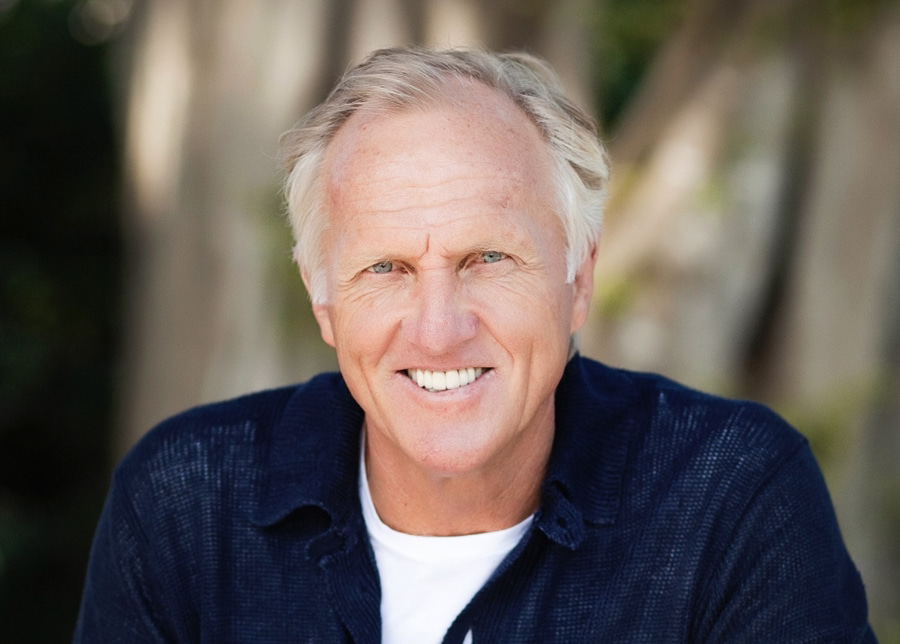Golf
Does LIV Golf have a chance of success? An American economist doesn’t think so. Norman refutes his fears

This is really a multimillion-dollar question. Does LIV Golf have the potential to make its mark in the global golf ecosystem? To thrive, to be popular with fans, to make money and perhaps one day pay back the huge investment from Saudi Arabia? No, of course there is no clear answer to this. But it was an interesting topic on an American podcast about world golf.
The People I Admire podcast hosted LIV Golf CEO Greg Norman to try to explain to US economist Steve Levitt why the future of their innovative golf product is based on a positive wave. Steve Levitt, who is also a professor and author of many bestsellers says that LIV Golf will not survive “more than a few years”.
Norman first outlined LIV’s plans, which primarily involve building franchises, which would be individual teams. LIV Golf wants to sell these teams to sponsors who will fund a group of their players. The twelve core players (captains of the individual teams) currently own 25 percent of said franchises. The league (LIV Golf League) owns 75 percent.
In the future, however, each franchise is to be owned by a corporate firm that will be responsible for its team. It will finance it, just as it does with teams in, for example, the NFL. Otherwise, these franchises can also be compared to Formula 1, where individual stables operate in a similar way.
Norman was asked why he thinks the LIV team format will work in terms of interest, noting that past attempts to turn individual sports into team sports have not been successful. Levitt cited the example of the World Team Tennis League, which although it has been around since 1970, he doesn’t think it has been well followed. He also cited college golf, which he said receives almost no attention as a team sport.
“Theinvestment dollars that are sitting there have been allocated to LIV Golf. That means the investments we are making in golf on a global basis,” Norman said. “Interesting fact, Steven,” he continued. “Theaging demographics of people who watch the PGA Tour are very high. They’re around 66 to 67 years old,” he explained.
What the former PGA Tour player meant to say was that the magic at LIV Golf is primarily targeting a younger audience that isn’t as interested in the PGA Tour: “And you know what LIV has done? Because of the format, because of the enthusiasm of the fans, 60 percent of the people who watched us in 2022 were under the age of 45,” Norman noted. At the same time, he didn’t say where he got this information.
The 87-year-old LIV CEO added that he sees opportunity and potential here, which is what Levitt asked him about. He said the PGA Tour has neglected its monopoly by not trying to target a younger audience. In short, it didn’t have the foresight.
At the same time, unlike the PGA Tour, LIV Golf doesn’t want to be an American product, but wants to target fans around the world. However, this can be seen not only by the composition of the players on each team, but also by the destinations where LIV Golf wants to go in its program. After Mexico, outside of the US, it will be appearing on every other continent in the coming months, including Europe and Australia.
But Steve Levitt also believes that LIV Golf could have come up with something more attractive here that would have taken the team model even further.
“Every example I can think of where individual sports have generated team excitement has been tied to national teams. We have the Olympics, the Ryder Cup in golf, the Davis Cup and the Billie Jean King Cup in tennis. I would have expected you to organize your LIV franchises around geography, but you didn’t,” Norman countered in LIV Golf’s business strategy.
Norman replied that LIV Golf in a way has international teams. But Levitt said that is not entirely the case, seeing players of different nationalities on most teams. Although he himself sees some potential in LIV Golf, he does not believe that it has a chance to take hold permanently.
“In terms of LIV Golf making the world a better place, my personal opinion is that yes, the competition is good. But in the end, I suppose it will benefit golf fans,” thinks the well-known American economist.
According to him, LIV Golf may be trying new things, but the PGA Tour is doing it too. In particular, he mentioned the upcoming project of Tiger Woods and Rory McIlroy catching Monday night team matches in indoor venues, due to start in 2024.
“I’m a little skeptical about the economic viability of LIV Golf. I just don’t see the franchise model working, at least in its current form. If that’s the case, I don’t think LIV will survive more than a few years,” he estimates.
But at the same time, Steve Levitt admits that he has been wrong in the past as an economist, too. He admitted that he once said that Amazon would never make a profit and that electric vehicles would never be viable. He has also previously questioned the growth of Bitcoin.
“Even after the big crash in 2022, the price of Bitcoin today is 2,000 times higher than when I confidently declared it a bubble. So my opinion is probably worthless,” he noted with exaggeration on his assessment of the Greg Norman interview.
LIV Golf is currently in its second season with its inaugural tournament in Mexico. Even with the recent television contracts, the viewership has not been very high. At the same time, LIV is still practically in its infancy. It is not planned to become fully operational until sometime in 2025.
Source: LIV Golf, People I Admire












